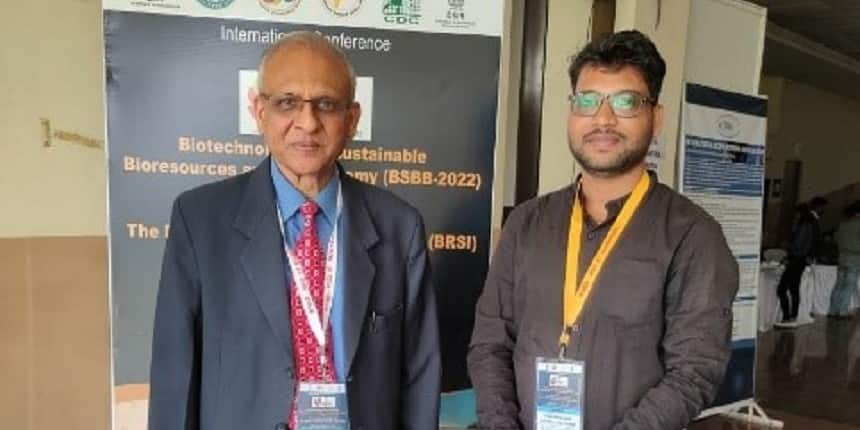IIT Guwahati researchers study efficacy of enzyme which can break down woody biomass into fuel
Vagisha Kaushik | December 28, 2022 | 04:04 PM IST | 2 mins read
IIT Guwahati scientists studied the efficacy of endoglucanase called RfGH5_4 in breaking down lignocellulosic biomass for conversion to bioethanol fuel.

NEW DELHI: The researchers from the Indian Institute of Technology (IIT) Guwahati have studied the efficacy of an enzyme that can break down the woody biomass into simple sugar which can be fermented into a renewable fuel that can replace petroleum-based fuel systems.
A team led by Professor Arun Goyal, Department of Biosciences and Bioengineering, IIT Guwahati, in collaboration with researchers from the University of Lisbon, Portugal have recently published the discovery and observations of the research in the International Journal of Biological Macromolecules. The published paper is the research work carried out by Parmeshwar Vitthal Gavande, Doctoral student of Professor Arun Goyal, as a part the PhD thesis work.
Also Read | IIT Madras chemistry professor gets VinFuture Prize for developing low-cost filter for groundwater
"The IIT Guwahati scientists have shown the efficacy of a new type of endoglucanase called RfGH5_4 in breaking down lignocellulosic and hemicellulosic biomass for the eventual conversion to bioethanol fuel. The enzyme was derived from a bacterium called Ruminococcus flavefaciens," IIT Guwahati said in a statement.
IIT Guwahati team chose Ruminococcus flavefaciens because this bacterium is found in the gut of cows and other cud-chewing animals which have faced the cellulosic pressure for millions of years. The particular gene encoding the cellulase enzyme, RfGH5_4 was fished-out from R. flavefaciens. The researchers have thus developed this efficient machinery of RfGH5_4 to break down cellulose and cellulosic structures into simple sugars. The bacterium harbours a cohort of at least 14 different multimodular enzymes that can break down cellulose, one of which is RfGH5_4.
Also Read | IIT Kanpur to host annual entrepreneurial event E-Summit’22 from January 13-15
Explaining the research work, Professor Arun Goyal, Department of Biosciences and Bioengineering, IIT Guwahati, said, “We characterized Endoglucanase, RfGH5_4 and found that it hydrolysed carboxymethyl cellulose (a lab-scale analog of cellulose) as well as normal amorphous cellulose with greater catalytic efficiency. Our studies also showed that this enzyme acted on lignocellulosic substrates from different agricultural residues such as cotton stalk, sorghum stalk, sugarcane bagasse, etc. and had good affinity for hemicellulosic substrates as well which include β-glucan, lichenan, xyloglucan, konjac glucomannan, xylan and carob galactomannan”.
Follow us for the latest education news on colleges and universities, admission, courses, exams, research, education policies, study abroad and more..
To get in touch, write to us at news@careers360.com.